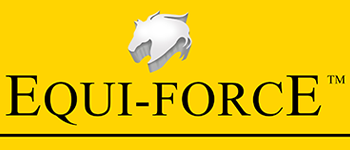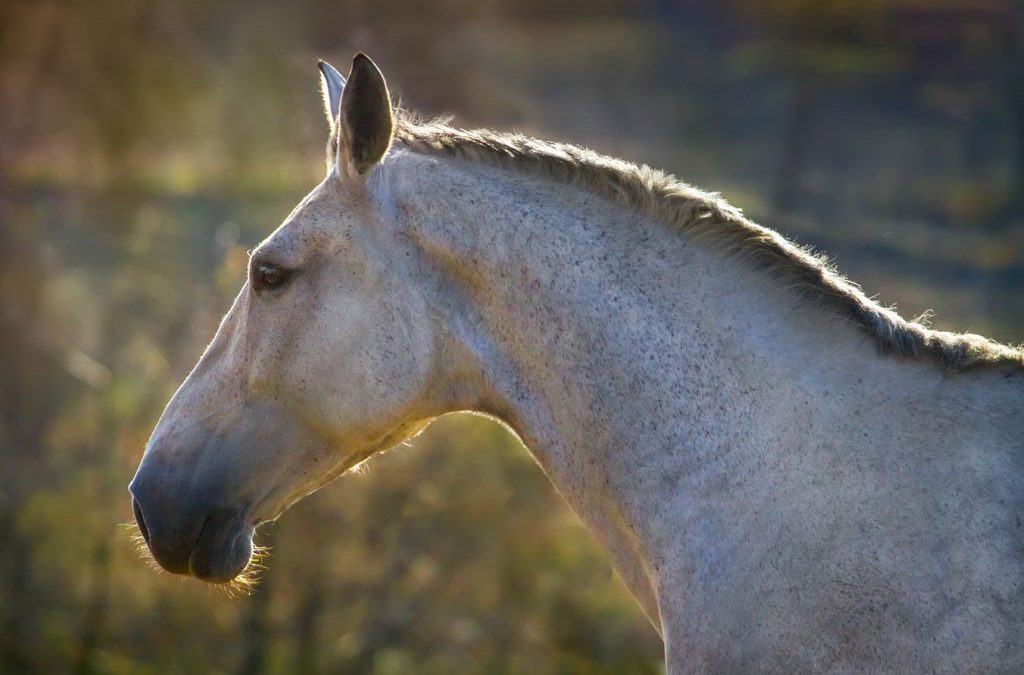A,B,C,D,E,K – Vitamins and the Horse
Vitamins in the horse’s body serve as antioxidants and are necessary for several metabolic processes, often acting as catalysts in biochemical reactions. Unlike minerals, which are inorganic, vitamins are organic compounds that can be classified as either water- or fat-soluble, depending on how they are absorbed and stored within the body.
Water-soluble vs. Fat-soluble Vitamins
Water-soluble vitamins are dissolved easily in water and, therefore, are quickly excreted from the body on a daily basis; fat-soluble vitamins are absorbed through the gastrointestinal tract with the help of lipids (fats) and can be stored in body tissues.
B vitamins and vitamin C are water-soluble, and because of their relatively quick excretion, they are not stored within the body. On the other hand, vitamins such as A,D,E, and K are fat-soluble and stored.
Vitamin Sources
The horse is able to produce vitamin D through a process that involves absorbing ultraviolet rays from sunlight into the skin; vitamin C is synthesized from glucose in the liver; and niacin, a B vitamin, is produced by converting the amino acid tryptophan in the liver. Microbes in the hindgut manufacture the remainder of the B vitamins, along with vitamin K. Therefore, the only vitamins the horse theoretically requires from dietary fortification are vitamins A and E, but generally, all these vitamins are routinely added to horse feeds.
When to Supplement
The fortification of concentrates and supplements fed to horses above and beyond maintenance requirements is common practice because high-level performance horses, broodmares, and growing horses will benefit from added supplementation (for more information on when and why you should provide additional vitamin supplementation, please see our blog post “Vitamin and Mineral Supplements – Beware of the “Kitchen Sink”). Special cases in which your horse may not be adequately producing the required vitamin amount may also call for additional supplementation. For example, horses that may not receive enough sunlight may become deficient in Vitamin D.
Toxicity & Deficiencies
Despite the extreme importance of vitamins, they are not required in great amounts. In fact, fat-soluble vitamins are stored in body tissues and consequently may actually reach a toxic level if provided in extreme quantities. Though toxicities and deficiencies with regard to vitamin requirements are not common in horses that are fed quality forages and well-formulated concentrates, it is important to detect the early signs that may be indicative of a problem.
The clinical signs of vitamin deficiencies are dependent upon the vitamin in question, for example:
Vitamin A
- Inadequate levels of vitamin A will result in decreased appetite and growth, increased respiratory problems, tearing eyes, weakness, poor-quality hair coat, and a lowered conception rate in broodmares
Vitamin D
- Deficiencies in vitamin D will produce a similar reduction in appetite and growth
Vitamin E
- In tandem with selenium, vitamin E acts as an antioxidant, removing free radicals and protecting body tissues, which is extremely important in the intensively trained horse. Inadequate supply of vitamin E, selenium, or both can result in decreased immune response. As the deficiency becomes more significant, it may cause muscle damage (myopathies) or inflammation of adipose tissue (steatitis), most commonly seen in foals. Insufficiencies of vitamin E in utero could result in generally stiff or weak muscles in the foal or development of white muscle disease
Vitamin K
- Insufficient vitamin K reduces the blood’s ability to clot because its function is to activate clotting factors.
As always, if you are worried about your horse’s vitamin intake and if it is reaching or exceeding the daily requirements, be sure to consult an equine nutritionist!
This blog post was originally posted on Thursday, May 3rd, 2012 at Equine Nutrition and Health Services Blog. Blog article was re-posted with permission from blog owner, all rights reserved.

